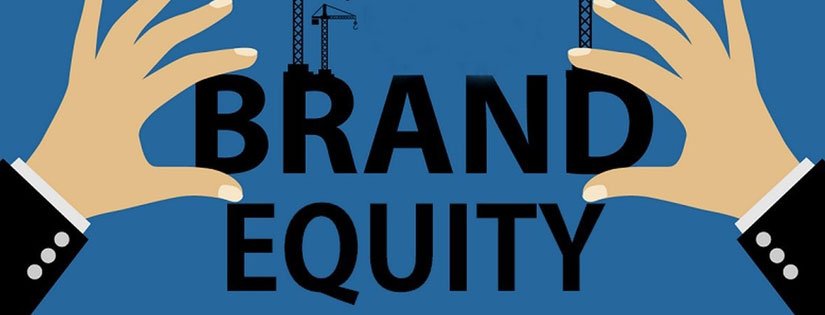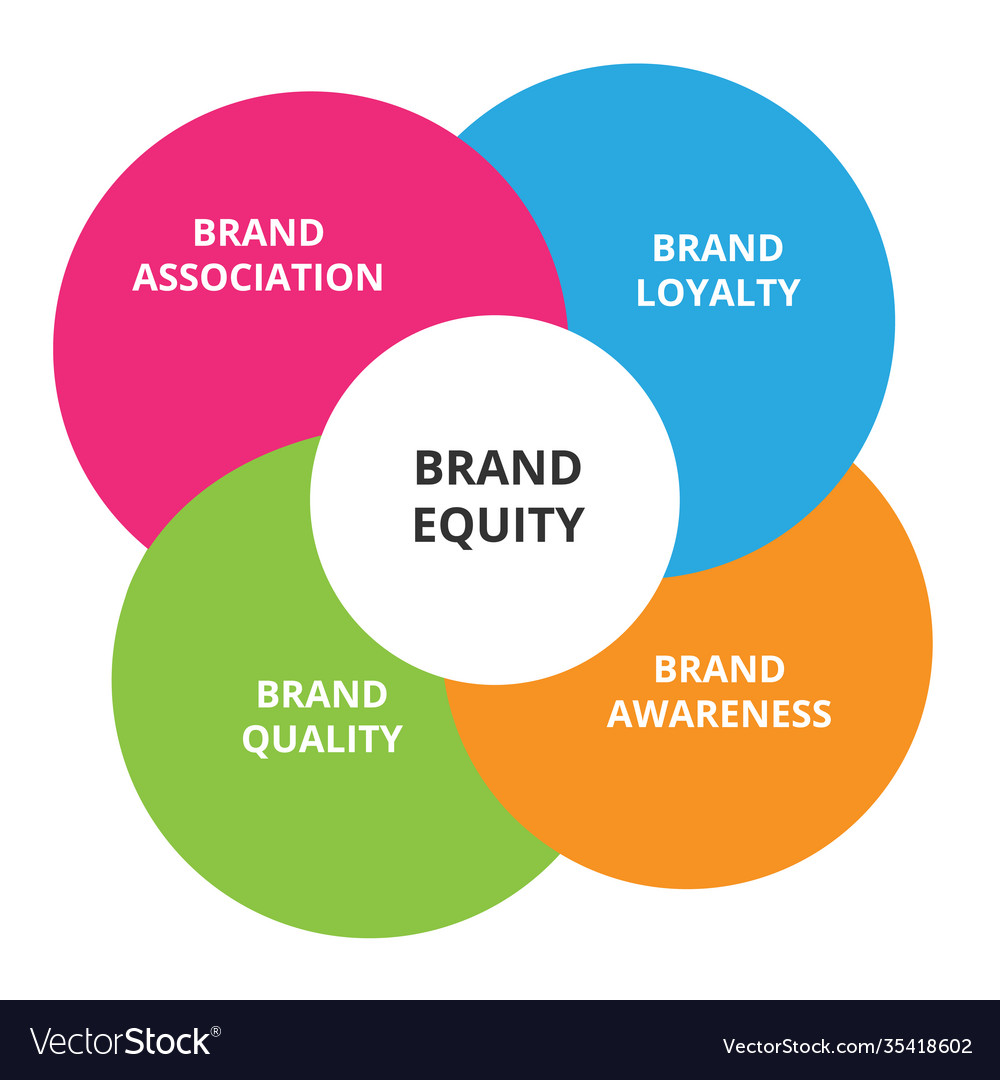You must realize that every business industry must have one brand or brand that is the leader of its market share. In fact, so famous, consumers no longer think about the price of the product peddled and still buy it rather than the competitor's product.

The easiest example is when you want to buy instant noodles, you may immediately think about buying Indomie rather than other instant noodle brands. Similarly, when you want to buy bottled water, you will automatically call Aqua to the shopkeeper. Well, some examples of these are the basis in understanding what brand equity is and its importance to a business.
Through strong brand equity, the business you live in has the potential to get sales and be loved by consumers in a certain market share. No matter the buzz of products or sales made by competitors' businesses, as long as brand equity is built firmly, most likely your business will still lead the market.
So, what do you mean by brand equity? Is it really important for a business brand? To answer this question, check out the following review.
Understanding Brand Equity
Not a few people who equate the understanding of brand equity with brand awareness. Although they have similarities in some aspects, the two things are not completely the same.
Brand equity is a plus owned by a company or brand rather than a competitor. The value is seen from the brand name that is better known by consumers. Brand equity has a higher value than brand awareness.
In practice, all companies must strive to create positive brand equity. The reason is because companies with high brand equity will be easier to remember and recognize, and superior in terms of quality.
Not only that, consumers usually will not think twice about buying a product offered by a business as long as it has a high level of brand equity, no matter the selling price of the product is more expensive than the competitor or not. An example of brand equity is Apple, which although its products are priced much higher than its competitors, consumers are still loyal to buying the product every time it launches a new product.

The value of brand equity can be influenced by the perception and experience of customers when shopping or using products from a brand. If the brand provides a less attractive experience, gradually customers will definitely switch to a competitor's brand. In other words, this is a sign that a business has low brand equity.
Stages of Achieving Brand Equity
Brand equity is the reciprocity of the consumer experience of a brand. Therefore, it takes a long enough process and extra hard efforts so that positive brand equity can be achieved. There are several stages so that brand equity can be achieved, among others:
Awareness
At the level of awareness or brand awareness, the brand introduces its business to the target market. The methods can vary, ranging from holding events, advertisements, and exhibitions.
Confession
In the second stage, the business has gained recognition or brand recognition. This stage means that customers gradually begin to get familiar and recognize the existence of a business or brand. Customers will usually be able to recognize a brand when they see it in public places, stores, and the internet.
Experiment
Next is the trial stage, which is that customers are aware and recognize the presence of a brand, and are interested in trying the products and services peddled.
Preferences
This stage is quite crucial because it determines whether a brand is able to compete in a business industry or not. If customers get a good experience from a particular brand, they will definitely prefer or tend to choose it over other brands. Conversely, if you feel dissatisfied with the product, service, or service, it is not impossible that consumers will even turn to competitors.

Loyalty
The last stage of brand equity is brand loyalty. After getting a good set of experiences with a brand, customers will definitely choose that brand in the long run.
Consumers will feel reluctant to turn away and use products or services from competitors. In fact, the business you live in also has the opportunity to be recommended to the relationship or people closest to the customer. Most importantly, keep the quality of products, services, and services so that customer loyalty does not collapse.
What are the benefits of brand equity for business?
The importance of building brand equity is not about achieving abundant profits instantly. Rather, the essence of this brand equity is to create long-term relationships with consumers. In addition, there are several other benefits of brand equity for businesses, including:
Gaining Consumer Loyalty
Brand equity is one of the many ways that can effectively realize customer loyalty. You must have acquaintances who only use smartphones from a certain brand. In fact, in terms of price and features, the products of smartphone competitors are no less displacing.
Yes, based on data, almost 60 percent of consumers tend to buy a product on a brand they already trust. For this reason, building brand equity is crucial because it is able to create positive customer value.
Staying In Demand Despite High Priced Products
When a brand has good equity, consumers will tend to waive the selling price of a product. Because of the trust in the value of a brand, customers will be more loyal. Indirectly, this will make consumers understand the high selling price because it must be proportional to the quality.
Improvements in Customer Retention
Customer retention is an effort to satisfy customers to have more potential to return to using your business products. A positive experience will foster confidence in consumers that other products launched by a brand are equally good quality. An example is that HP users from the Samsung brand may be more interested in buying other products launched by the brand. For example, a TV or refrigerator, and increases the potential for repeat orders.
Business Existence and Competitiveness Are Getting Stronger
The last benefit of brand equity is to strengthen the existence and competitiveness of the company. Customer loyalty will generate unrelenting demand and generate sales and profits. However, this must be accompanied by the development of products and services so as not to be missed by innovation from competitors.
Tips to Increase Business Brand Equity
Create Products with High Selling Power
Consumers will definitely buy a product or service that is able to meet what is needed. Therefore, before launching a product, make sure to affix high selling power, attractive, and able to meet the needs of the market. In addition, build a brand persona and brand story positively so that consumers more easily familiarize themselves with your business brand.

Experiment with the Right Target Market
Then, how to find out the product you launched according to the needs of the market? Of course, you need to test the target market first. Through this product testing, the business will receive a lot of input, advice, and also criticism as an evaluation material to improve the quality of the product to be launched and avoid the risk of product failure or unsatisfactory experiences from consumers.
Make Marketing Strategies As Effective as Possible
After having a quality product and high selling power, you need to make sure the public is aware of the presence of the product and convince it that the product is worth choosing. That's why planning a good and effective marketing strategy is important.
There are several marketing strategies that you can do so that brand equity is created. Based on the example of marketing strategies from Apple, you must be able to run community marketing, avoid excessive price competition, create a digital persona in a simple but alluring way, and practice copywriting attractively also effectively.
Build a Memorable Customer Experience
The last tip is to increase the customer experience impressively. This customer experience includes not only the quality of the product, but also the quality of service. With a maintained customer experience, indirectly brand equity will always be maintained and get many positive reviews from customers.
Realize Brand Equity Positively for the Creation of Business Stability
Brand equity is a powerful strategy to stabilize the business and create opportunities to survive in the long run. The reason is, brand equity does not pegged to short-term or material profits only, but to capture customer loyalty, increase business existence, guarantee business profits, and consumer opportunities to repeat orders. So, do not look one eye on the importance of building this brand equity for the sake of creating stability in your business.

